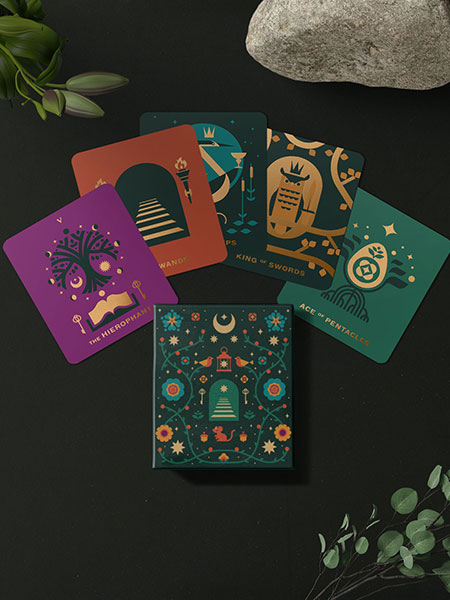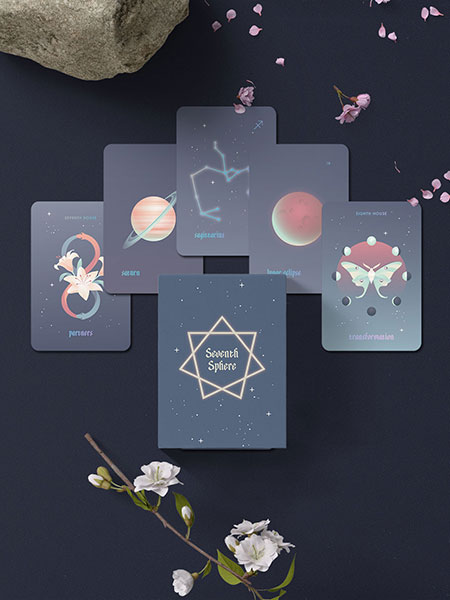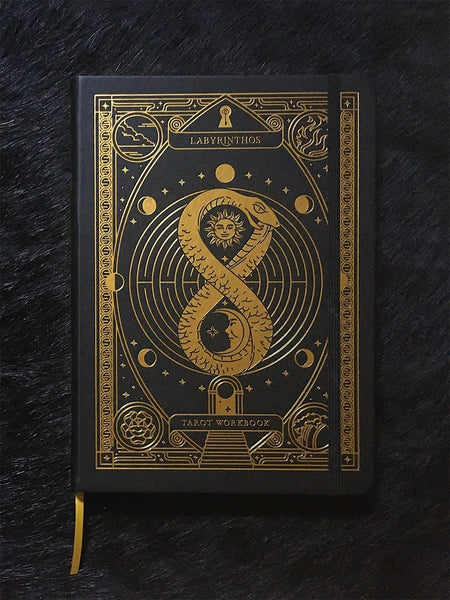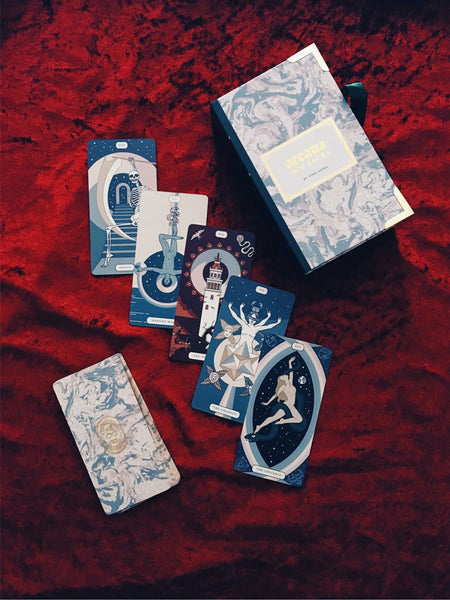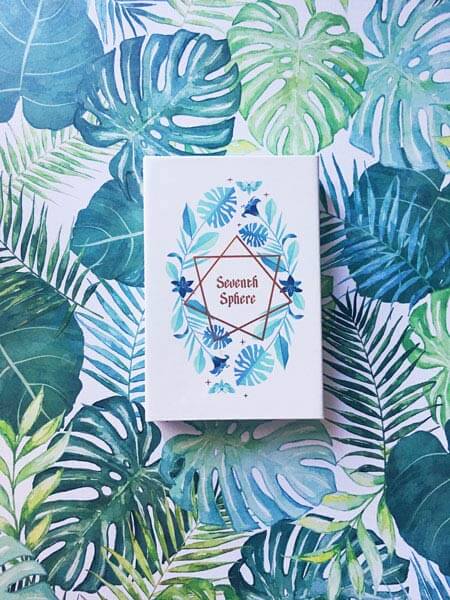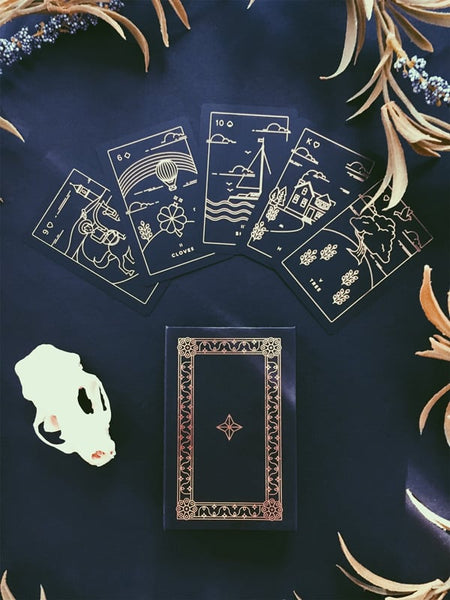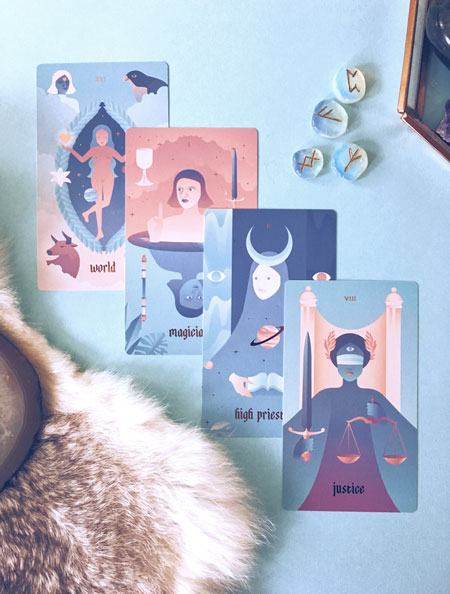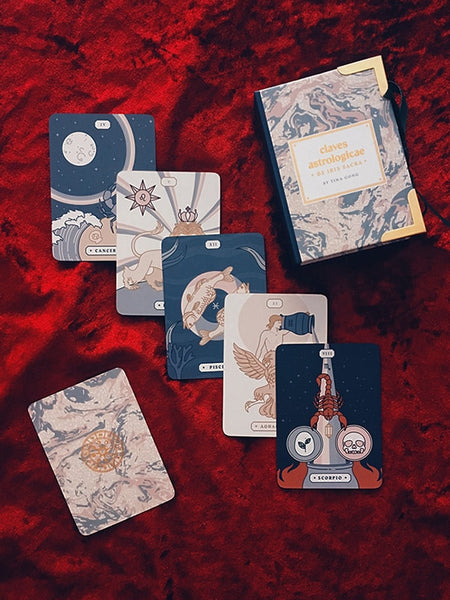✦ ✦ ✦
The Differences Between Tarot Cards and Lenormand Cards
Published
For anyone already familiar with Tarot, the name Lenormand probably rings a bell by now. We wrote a little post about its origins and a overview of each of the symbols within the Lenormand deck in an earlier post. This little deck of cards has seen a great increase in popularity in the English-speaking world and a surprising number of readers seem to be expanding their trusted 78 cards to include the more portable 36 set of Lenormand. But what is the fuss all about? And how do the two compare?
Tarot Cards Have Reversals - Lenormand Cards Do Not
One of the more obvious things to note with Lenormand Cards is that they lack reversals. Each of the individual cards come with a general symbol, and they for the most part lack moral judgement. Though not always, Tarot reversals can indicate negativity, blockages, or extremes in a reading. But with Lenormand Cards, they are meant to hold both positive and negative connotations. For example, the Anchor can indicate resilience and stability - but also indicate that one is stuck on something - unable to adapt or let go of something. In Lenormand, the reader will have to interpret the card’s affect within the context of the reading.
Tarot Cards Have Suits (Or Arcana) - The Lenormand Does Not
Tarot has been around since the 15th century and is a deck of cards divided into the Major and Minor Arcana. The former consists of 22 highly symbolic images carrying with them layers upon layers of meaning. The latter is closer to a playing card deck of 56 and is divided into four suits (wands, swords, cups and pentacles) with four court cards and ten pips in each. The rich imagery and sometimes extreme differences between decks make it very personal, evocative and visually stimulating. Through over half a millennia since its creation, and probably over a thousand recreations later, it has acquired countless layers of interpretation as well as numerous correspondences, connecting it to astrology, numerology, hermeticist teachings, Kabbalah and ceremonial magic (to name a few).
Lenormand cards, though they include correspondences to playing cards, leftover from their days as a parlor game, and still used to indicate timing, have no such structure.
Start Learning Lenormand
Our email course is filled with easy to read guides, worksheets, and more. Plus, get a link to our Lenormand app!
Tarot has a Psychological (And Spiritual) Approach - The Lenormand Has a Practical One
Originating in the late 18th century, Lenormand Cards have retained their fortune-telling badge of honor throughout, never quite crossing over into higher spiritual planes, never acquiring layers of complicated astrological correspondences. It always was and has remained a straightforward, easy to use, honest (sometimes too honest!) method of having a glimpse into the world around you. It gives highly specific answers to your questions, it doesn't bother with lofty spiritual aims, it goes straight to the point and delivers it with candor of a well intended friend who happens to lack tact. Tarot helps you up your spiritual ladder. Lenormand gives you information you can use to fix your real life problems.
Tarot Cards are Read More Intuitively - Lenormand Cards are read Syntactically
Another characteristic that separates the two is how they're interpreted. Both decks are equally potent as stimulants for our intuition and innate psychic powers but they trigger them in markedly different ways. Tarot is visual and is ideal for meditation, path-working, and self-understanding, guiding you through the maps of your mind, it’s connections with the collective unconscious, and beyond. The cards are read individually, based on their strictly defined positions in the spread and more often offer new perspectives rather than tangible guidance.
Lenormand on the other hand is semantic. There’s only a handful of spreads that are based on the arrangement of the cards. Its symbols are exceedingly simple and carry with them only a handful of keywords. Those keywords however, when connected together like a chain, can paint pictures as vivid as those of the Tarot. Lenormand uses different means to achieve a similar goal, triggering the language-centered part of our brain to bring about messages from an outer (perhaps higher) source. If you think of Lenormand cards as words, and lines of 3 or 5 images as sentences, you will easily see how card combinations can form as many different messages as there are situations in life. These are always straightforward, occasionally blunt, surprising, at times funny, but almost always spot-on accurate.
Tarot Cards vs Lenormand Cards Infographic

8 comments
-
MonicaHm, I just ordered your Golden Thread tarot, but the Lenormand deck seems more up my alley. Looking forward to this new deck! Still keeping the Golden Thread ;)
-
TinaHey Lisa! I do that sometimes too. There’s not necessarily a right or wrong way – I think these are little guidelines for beginners to start at, but as we get more comfortable with these systems we can deviate from them as much as we’d like – we can make new rules, new ways of reading. But it’s always helpful when starting out to have a more guided practice! It’s going to be fun diving into Lenormand, there’s quite a bit more to it than whats written here. More articles (and an app!) coming soon.
-
LisaWith this post, I think I’ve been using tarot the way lenormand is used. I’ll do a spread, but usually 3 card, all intuitive, sometimes 1 or 2 cards. More of a how when I read too. But I’m just beginning after a long sabbatical. Thank you for all of your knowledge and the apps!
